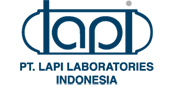“The power is with the women”


Interview with our head of Microbial Discovery and Development, Eleni Tsompanidou:
Eleni Tsompanidou has been deeply involved in the Women for Women project. In this interview, she delves into the objective of the project, Winclove’s role, the significance of the Lactobacillus crispatus bacterium and the opportunities it creates.
Eleni, could describe your role at Winclove Probiotics?
“Certainly! I’ve been part of the company for six years, starting as a senior scientist in strain development. Currently, I am head of Winclove’s Microbial Discovery and Development team. My team specialises in isolating, characterising and upscaling bacterial strains, to extend our probiotic strain selection.”
Can you tell us about the Women for Women project?
“The Women for Women is a Dutch-government funded science project that brings together women and researchers to explore the role of bacteria in vaginal health. Women actively participate by isolating their own vaginal bacteria.
The project aims to develop an accessible, user-friendly femcare-product to support vaginal health and reduce the risk of infections. This is done in collaboration with knowledge partners, including Winclove Probiotics. The objective for Winclove is also to work on adding an L. crispatus strain to our collection, a crucial step toward future product development in women’s health.”
Who are the key partners in this project?
“Vrije Universiteit Amsterdam focused on bacterial strain isolation. Base Clear, expert in microbial genomics, handled genome sequencing, and the Crispatus Foundation, a women’s collective, supported the research by donating and analysing vaginal swabs. Winclove Probiotics contributed expertise in fermentation and strain development. And Yoni, a company that produces sustainable menstrual products, is responsible for the commercialisation of a female hygiene product with probiotics.”
What makes this project unique?
“The project’s approach is unique, because women from the Crispatus Foundation were truly co-creators. They contributed vaginal swabs and participated in the lab work, isolating bacteria alongside researchers. Furthermore, the foundation retains ownership of the strains they provided, truly putting the power in the hands of the women. They were even invited to name their own unique L. crispatus strain.”
Why is L. crispatus important for women’s health?
“Studies show that the presence of L. crispatus in the vaginal microbiota, is strongly associated with both vaginal and overall women’s health. The ideal candidate for the project!”
What inspired Winclove to participate in this project?
“Winclove joined the Women for Women project to stay at the forefront of scientific research and help create solutions that truly support women.” Elke Lievens, Head of Winclove’s Mechanistic Characterization & Development team, adds “With rising recurrence rates of urogenital conditions, women deserve a better solution than antibiotics, one that supports their microbial environment rather than disrupting it. By working towards a probiotic solution featuring L. crispatus as a hallmark species for vaginal health, we aim to make a meaningful difference for women.”
Can you explain why strain selection is important?
“It’s important to understand that the properties of one strain do not necessarily apply to another strain, even if they share the same name, such as L. crispatus. For this strain, the goal was to identify strains that are safe, effective, and suitable for product development. Isolating L. crispatus is challenging due to the specific conditions required for these strict anaerobes to grow. Despite these complexities, we successfully produced several crispatus-strains at pilot scale.”
Could you describe the main results of the project?
“Together we developed and validated a protocol for isolating and analysing L. crispatus bacteria for safety and producibility. We selected eight promising strains and developed a fermentation process to produce a stable bacterial powder for further product development. Now, Yoni explores the application of this probiotic powder into a commercial female hygiene product, such as a tampon or sanitary pad.”
Which Winclove teams are involved in the project, and how do they collaborate?
“First, the Microbial Discovery and Development team focused on characterising the obtained L. crispatus strains that were safe, and suitable for product development. Next, our bioinformatician from the R&D Innovation team assessed the safety, functionality and strain relatedness by analysing the genome sequences of each strain. Subsequently, the fermentation team optimised the production process, scaling up the growth of the strains and developing freeze-dried bacterial powders for practical application. Finally, the R&D quality and analysis lab team ensured that the produced powder met rigorous safety standards through analysis, and stability assessments.”
Did the participating women share any feedback?
“It was truly a special experience for the women involved. During one meeting, we brought the freeze-dried powder from one of the L. crispatus strains. The women were thrilled, they opened the jar, smelled the powder, and were amazed at how fine and well-processed it was. Seeing something touchable that came from their involvement brought everything to life.”
How could this project benefit Winclove and its business partners?
“The Women for Women project has opened new opportunities for Winclove and its business partners to advance women’s health and quality of life. It has strengthened our expertise in strain isolation, safety profiling, and scalable production processes. Additionally, it has laid the foundation for functional testing to confirm the health benefits of the strains. The promising potential of freeze-dried L. crispatus powder paves the way for future product development, aiming to address key women’s health challenges with premium multi-strain probiotics.”
What is your personal takeaway from the project?
“Personally, it’s been inspiring to see how science and community can come together to create meaningful solutions. The enthusiasm of the women involved and the touchable results we’ve achieved are incredibly rewarding.”
Interesting updates in your mailbox
Subscribe to our newsletter and receive the latest news about Winclove, probiotic-related research & publications, relevant market developments and inspiring articles.








